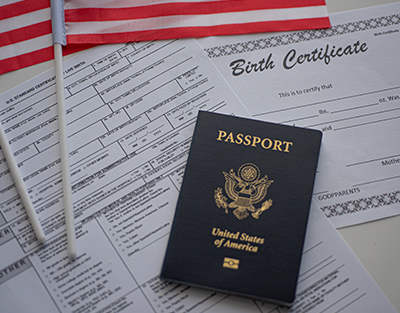
Download this material in English here.
Download this material in Spanish here.
Promotions in the Retail Sector – Notice to PROFECO or SEGOB Permit?
Intellectual Property and Life Sciences
by Juan Luis Serrano-Leets, Mariajosé Ayala-García and Javier Villanueva-Rodríguez de la Vega
Commercial promotions in the retail sector can be subject to regulations related to consumer protection, and in some cases, to those applicable to games and contests. In this section, we analyze some of the most common scenarios.
The Federal Consumer Protection Law defines promotions as commercial practices through which goods or services are offered to consumers with various incentives, such as providing another identical good or service for free or at a reduced price, or with the incentive to participate in drawings or contests.
In most cases, prior authorizations are not necessary to carry out promotions, with some relevant exceptions:
- For promotions involving drawings, contests, or collectibles, it is necessary to submit a promotion notice to PROFECO (Procuraduría Federal del Consumidor) per NOM-028-SCFI-2007. This Official Standard provides guidelines applicable to these promotions, focusing on the information that must be provided to consumers participating in the promotion.
- In cases where drawings are held, broadly understood as activities for consumers where the distribution of prizes/ selection of winners depends on chance, a permit from the Ministry of the Interior is required.
- For promotions involving collectible items, a notice to PROFECO is sufficient.
- Regarding contests, broadly understood as promotions where prizes depend on the contestants’ skill, there are contradictory interpretations regarding the need for a permit.
Regarding contests, the NOM can be interpreted to mean that a contest requires obtaining a permit issued by the Ministry of the Interior (SEGOB) under the Federal Law on Games and Contests.
On the other hand, SEGOB does not have explicit powers to issue permits in these cases.
This ambiguity has led to situations where the Federal Consumer Protection Agency (PROFECO) sometimes requires the submission of these permits in promotions where the determination of winners depends on contestants’ skill rather than chance. In these cases, strictly speaking, it would only be necessary to submit a notice to PROFECO, which is free and does not require the promoter to wait for a response from the authority. In the absence of the corresponding permit, we have seen sanctions imposed on the responsible company.
In general, it is always advisable to thoroughly review the structure of promotions in the retail sector and identify possible risks arising from the authorities’ criteria. We have developed solutions that allow our clients to conduct their commercial promotions in strict compliance with applicable legislation, reducing the risks of fines for not having a permit from SEGOB, while also ensuring a strong defense in case it is necessary to file an appeal.
What to do When PROFECO Knocks on Your Door
International Trade and Customs
by Eduardo Sotelo-Cauduro and Laura Elisa Sánchez-Barrón
It’s a reality that the retail industry is one of the sectors that has suffered the most significant impact during and after the Covid-19 pandemic.
The industry was forced to adapt to the virtual realm, resulting in various changes in how e-commerce compliance was verified and accredited. For example, the implementation of the “Digital PROFECO Badge”, awarded to providers who excelled in promoting safety and transparency to consumers through digital platforms, and the evolution of the “Monitoring of Virtual Stores”, also promoted by PROFECO.
Now, three months after the end of the Covid-19 health emergency was declared in May 2023, the industry is facing a significant challenge: the rebirth of physical stores.
After being compelled to shift product acquisitions to a virtual modality, people are eager to return to the physical shopping experience.
Therefore, it is no surprise that Mexican authorities are strengthening compliance verification processes through inspections of physical stores, which are becoming increasingly common.
These “verification visits” that we have all heard about or experienced can only be conducted by PROFECO personnel, who must meet the requirements stipulated by the law; otherwise, they would be illegal.
It is important to thoroughly review the documentation provided by the verifier before granting access to the store tour, as the correct company details must be included in the verification order. Otherwise, the verified company may refuse the visit.
The purpose of these verification visits in physical stores is usually related to labeling and commercial information available to consumers at the time of purchase, so various labeling standards (NOMs) could apply.
It is essential to be prepared for them, to train our on-site personnel, and to identify the verifier’s findings to be in a position to correct any irregularities and avoid the initiation of administrative proceedings.
Prevention is key to the success of these visits, so we recommend periodic internal reviews of facilities, labels, and safety regulations, as well as the constant review of the modifications to the NOMs on labeling and the request for compliance certifications issued by Authorized Verification Units since these are considered an official document of compliance.
Let us remember that there are procedures that help the supplier, in case of involuntary inconsistencies, such as the request for an extension of time in labeling due to inaccurate data, which allows products to be marketed for a certain period while the labeling is corrected.
The Directorate General of Standards (DGN) of the Ministry of the Economy has shown us that it is acceptable to make mistakes, as long as the company is fully committed to rectifying them and complying with applicable laws and regulations.
We encourage you to be proactive and seek proper guidance. Don’t let yourself be caught off guard.
E-Commerce and its Impact in the Real Estate Market
Real Estate, Infrastructure and Hospitality
by José Francisco Pamanes-Cantú
Electronic commerce (“e-commerce”) has revolutionized the way people shop, offering convenience, variety, and accessibility to a wide range of products. In Mexico, the e-commerce sector has experienced rapid growth in recent years, driven by increased internet usage, changes in consumer preferences, and advancements in digital payment methods. However, this growth also presents challenges in the logistics sector that e-commerce companies must face to ensure smooth operations and customer satisfaction, such as:
- Infrastructure Limitations: Mexico’s diverse geography poses a significant challenge for logistics operations. The country’s vast size and varied landscapes can cause delays and increased costs in transporting goods. Poor road conditions, especially in rural areas, can hinder timely deliveries, impacting customer satisfaction. Additionally, limited storage facilities and insufficient transportation networks can further strain the supply chain, resulting in inefficiencies and higher operational costs. Furthermore, the capacity offered by companies and government entities providing public services is limited and cannot meet the overall demand for services requested by businesses.
- Storage and Distribution: E-commerce is not exempt from the need for strategic facilities for storage, inventory control, and product distribution. E-commerce companies must negotiate favorable conditions in the lease agreements they enter into with owners of strategic warehouses in various locations in Mexico. Seeking advice from real estate agents and experts in the field is essential for these purposes.
- Regulatory Obstacles: Regulatory frameworks and customs processes can be complicated for e-commerce companies operating in Mexico, especially for foreign investors. Import and export regulations, customs tariffs, and tax compliance can vary, leading to delays in the clearance of goods and potential disputes or controversies. E-commerce companies must stay informed about the constantly changing regulatory landscape to streamline cross-border operations. Additionally, these e-commerce companies face a lack of sophistication in some municipalities and states in Mexico, posing a challenge in obtaining the necessary permits and licenses to establish and operate their businesses. Therefore, it is recommended that companies planning to venture into e-commerce seek appropriate tax, corporate, and regulatory advice from experts familiar with the country’s landscape.
- Workforce and Employment: The logistics sector in Mexico faces a shortage of skilled labor and professionals who understand the complexities of e-commerce operations, not to mention the complexity of Mexico’s special labor regulations. Recruiting and retaining qualified personnel who can manage technology-driven logistics solutions, data analytics, and customer service is critical, as well as compliance with labor, tax, and social security obligations, which are vital to ensure the smooth operation of e-commerce logistics.
While e-commerce in Mexico offers immense growth opportunities, challenges in the logistics sector cannot be overlooked. Overcoming infrastructure limitations and navigating regulatory complexities in Mexico are essential to building a robust e-commerce logistics system. E-commerce companies that invest in innovative solutions, and strategic partnerships, comply with regulatory frameworks, and focus on customer-centric logistics will be better positioned to thrive in Mexico’s evolving digital market.
The Importance of Due Diligence Prior to the Purchase or Lease of Real Estate Destined to Minor Retail Trade
Corporate governance and regulatory compliance
by Franco Rafael Guízar-Iriarte
In the realm of retail, every company faces a series of challenges when selecting the distribution channel for offering its products and services.
One of the most recurrent challenges, in contrast to online sales, is physical points of sale. These can be located within commercial complexes or follow the independent model known as ‘stand- alone,’ where the store operates individually in a location with direct street access.
Consequently, the first step in choosing a stand-alone distribution channel is to secure a suitable physical space to display products and services to the general public. Additionally, it is essential to determine whether the planned activities in that space require authorizations, licenses, or permits to legally operate.
However, the lack of anticipation in obtaining licenses and permits can lead to significant risks. These inconveniences can divert efforts intended for sales and customer service, as legal and administrative issues with local authorities need to be addressed. In extreme situations, this could even result in the permanent closure of the establishment.
Therefore, it is fundamental to consider the process of obtaining licenses and permits well in advance. This becomes critically important to ensure that operations flow without interruptions. On a national level and especially at the municipal level, the obtaining of a variety of authorizations, registrations, licenses, and permits will be necessary.
As a result, it is essential to identify the legal provisions that apply in the municipality and state where the business is located, as these rules will dictate the guidelines regarding the information that will be necessary to outline the framework of obligations that apply to the business and eventually to secure the required licenses and permits.
However, our recommendation before using the real property for a specific purpose is to initiate a process known as ‘due diligence’. In this process, we ensure that the project or operation we plan to carry out is compatible with the relevant regulations in the area, specifically zoning regulations contained in planning instruments, known as urban development plans and programs.
Even concerning construction, it is essential to identify what can and cannot be built, and to show that the existing construction indeed may lawfully exist because it has the necessary construction permits.
Having considered these aspects, can you imagine leasing or acquiring a property, only to later discover that it is not suitable for the business due to usage restrictions? This situation could lead to significant problems. Another scenario that frequently occurs is starting a renovation, only for authorities to shut down the work for days or even weeks due to the absence of proper authorizations.
To avoid these kinds of setbacks, it is essential to determine which regulations are relevant in our specific case, obtain the necessary authorizations outlined in these regulations, and thus prevent unnecessary expenses and complications.
Tax Regime Applicable to Digital Platforms Dedicated to Electronic Commerce
Tax
by Mariana Eguiarte-Morett and Pedro Ángel Palma-Cruz
Within the commerce industry, it is common for residents abroad to conduct sales or provide services through digital means such as the Internet or applications. In these cases, it is important to consider that these non-Mexican residents will be obligated to collect and remit the Value Added Tax (VAT) applicable to these operations, subject to various obligations, as described below.
-
Applicable regime for foreign digital platforms
As of June 1, 2020, a new VAT regime came into effect in Mexico, thereby applying to foreign residents providing “digital services” to recipients located in Mexican territory and residents abroad providing “digital intermediary services” between providers of goods and/or services and their customers, when the latter are located within Mexican territory. -
Digital services
Digital services are considered to be subject to VAT when they are provided through applications or content in digital format through the internet or other networks, mainly automated, and may or may not require minimal human intervention, and to the extent that a consideration1 is charged for such services.It is important to keep in mind that these digital services will be subject to VAT to the extent that they are rendered to recipients located within Mexican territory.
-
Digital intermediation
Concerning the case of digital services - intermediation between third parties that are suppliers of goods or services and the demanders of the same - the VAT law provides a specific chapter that regulates them, imposing additional obligations on foreign residents without an establishment in Mexico, who provide digital intermediation services between suppliers of goods and/or services and the purchasers of such goods and/or services, when the latter are located in Mexican territory. -
Obligations
Depending on the activities conducted by foreign residents without a permanent establishment, whether they involve digital services or intermediation, a detailed analysis of the applicable obligations for the specific activity performed must be carried out. -
Penalties
Regardless of the pecuniary penalties and tax offenses that could be incurred in the event of non-compliance with the above-mentioned provisions, the VAT law establishes as a special sanction for the lack of compliance with certain obligations, the temporary blocking of access to the digital service of the provider that failed to comply with such obligations. Such blocking will be carried out through the concessionaires of the public telecommunications network in Mexico until the tax situation of the non-compliant party is regularized.
[1] Article 18-B, first paragraph of the VAT law.
- - - - - - - - - - - - - - - - - - - - - - - - - - - - - - - - - - - - - - - - - - - - - - - - - - - - - - - - - - - - - - - - - - - - - - -
For any questions or comments about this article, please contact our specialists:
Promotions in the Retail Sector – Notice to PROFECO or SEGOB Permit?
Juan Luis Serrano-Leets [email protected], Mariajose Ayala-García [email protected] and Javier Villanueva-Rodríguez de la Vega [email protected]
What to do When PROFECO Knocks on Your Door
Eduardo Sotelo-Cauduro [email protected] and Laura Elisa Sánchez-Barrón [email protected]
E-Commerce and its Impact in the Real Estate Market
José Francisco Pamanes-Cantú [email protected]
The Importance of Due Diligence Prior to the Purchase or Lease of Real Estate Destined to Minor Retail Trade
Franco Rafael Guízar-Iriarte [email protected]
Tax Regime Applicable to Digital Platforms Dedicated to Electronic Commerce
Mariana Eguiarte Morett [email protected] and Pedro Ángel Palma-Cruz [email protected]
-
 February 07, 2025"Birthright citizenship" by Abel Mejía - Article in Spanishread article
February 07, 2025"Birthright citizenship" by Abel Mejía - Article in Spanishread article -
 January 10, 2025"Status of the Corporate Transparency Act" by Abel Mejía - Article in Spanishread article
January 10, 2025"Status of the Corporate Transparency Act" by Abel Mejía - Article in Spanishread article -
 December 10, 2024"Charging Stations: The Future Potential of Investments in Mexico," by Tania Trejo for Energy Debateread article
December 10, 2024"Charging Stations: The Future Potential of Investments in Mexico," by Tania Trejo for Energy Debateread article